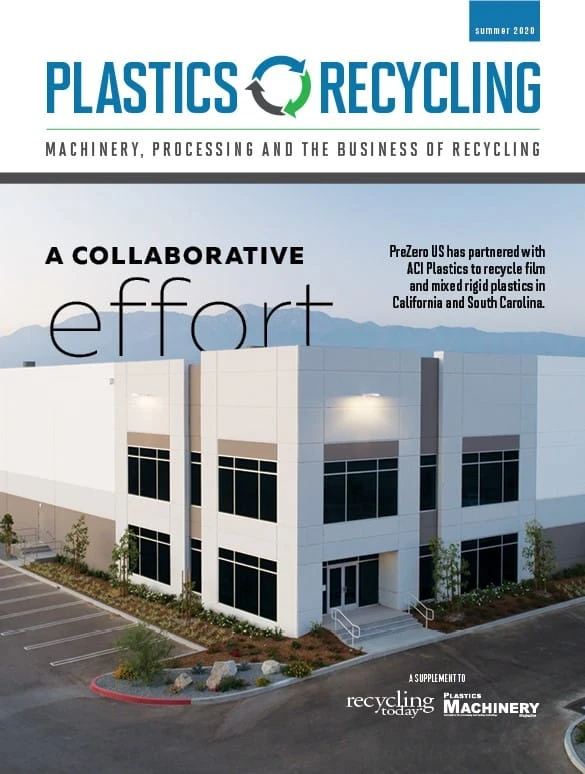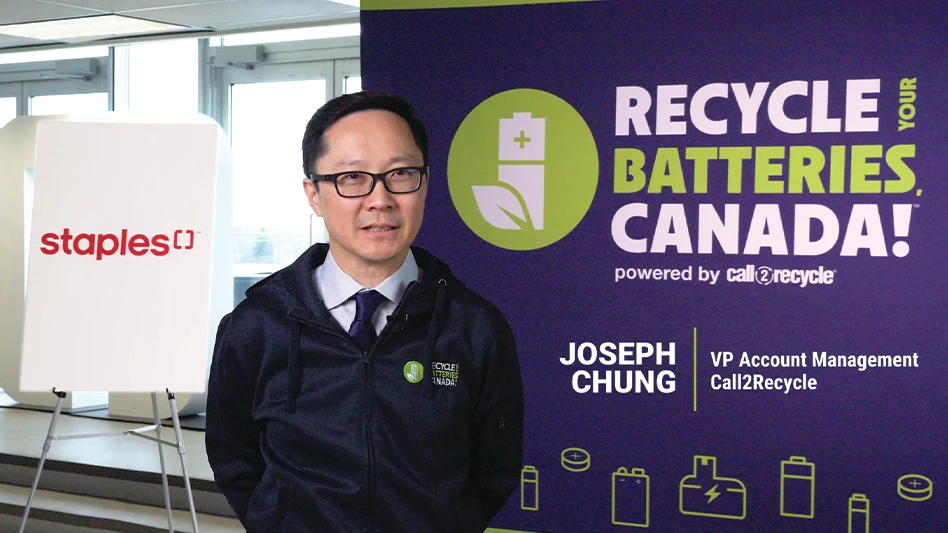Scott Melton, president of ACI Plastics, began his professional career in commercial lending. He joined ACI, which is known for its paint-removal expertise and its ability to separate commingled plastics using a variety of processes, in 1995. It was then that his professional path was rerouted. “I started at ACI in finance and quickly became involved in the operations,” he says.
Melton became more engaged in the sales side of the business in 2003, rounding out his knowledge of the business before becoming ACI’s sole owner in 2007.
“In 2011, I brought on a partner to run the Michigan operations. We brought on a partner for our South Carolina operations in 2012.”
In his time with ACI, Melton says molders’ knowledge about the scrap they generate has deepened. When he first started at ACI, the company’s customers referred to their scrap as “black plastic,” he says. “Ten years later, they referred to it as black PP [polypropylene] parts from a certain process. Today, they refer to their scrap as black, 20 percent filled, 16 MFI [melt flow index], 2 Izod copolymer PP.”
In the interview that follows, Melton shares other observations he has made and lessons he has learned throughout his career in the plastics recycling industry.
What lessons have you learned about the industry that have helped you throughout the years? Solving plastic scrap problems for customers takes time. It is really important to run trials and discuss the results with the customer. Working with the customer to create long-term solutions makes for recycling partners, not just a customer-supplier relationship.
Where do you see upcoming opportunities for plastics recycling? What about challenges? Simple plastics recycling is going away. Molders are very intelligent about how to manage their scrap. The opportunities are taking commingled materials, separating them and making a finished pellet that is consistent.
The challenges are going to be in keeping the conversion costs low during this time of low virgin resin pricing so the price[s] of recycled resins are still less than virgin.
What is one of your proudest professional accomplishments? ACI was the first company to develop a technology to remove paint from automotive bumpers. We developed it in 1997 and brought it to the market in 1998.
I am also very proud that we are now creating two postconsumer plants that will process MRP [mixed rigid plastics] and film—both very difficult to purify and sell [as] a high-quality pellet. (See the cover story for more on ACI’s involvement with PreZero US Inc.)
What misperceptions about plastics recycling do you wish you could debunk? That recycled plastics are inferior to virgin. There are many materials where the use of recycled resins can be directly substituted for virgin resin. The quality of the recycled pellet depends upon the systems installed by the recycler.
What’s the biggest professional mistake you have made? Not getting more involved in plastics-related organizations like APR [Association of Plastic Recyclers] and SPE [Society of Plastics Engineers]. I could have volunteered to sit on committees and worked on larger scale issues within the plastics industry.
Who has served as your role model or mentor? Mark Lieberman was the founder of ACI, and he did a tremendous job of creating a vision of working on hard-to-separate materials.
Bob Render has been a great mentor, as well. He has shown me the importance of networking with people and learning about new technologies, which are keys to long-term success. (Render was featured in this department in the Winter 2019 issue, available at www.RecyclingToday.com/article/robert-render-ravago-recycling-group.)
How have equipment suppliers to the industry helped to advance plastics recycling? The equipment vendors have really stepped up their game to solve problems with processing plastics. There are so many European equipment vendors who now have a physical presence in the U.S. to provide technical support and are bringing new sorting technology to market.
What advice can you offer to younger people entering the industry? Find your niche and do everything you can to perfect it. Know what’s inside your radar and go after that business. Build a team of employees that will stick with you for years; people inside your company are vital to your long-term success.

Explore the Summer 2020 Plastics Recycling Issue
Check out more from this issue and find your next story to read.
Latest from Recycling Today
- Hindalco to invest in copper, aluminum business in India
- Recycled steel price crosses $500 per ton threshold
- Smithers report looks at PCR plastic’s near-term prospects
- Plastics association quantifies US-EU trade dispute impacts
- Nucor expects slimmer profits in early 2025
- CP Group announces new senior vice president
- APR publishes Design Guide in French
- AmSty recorded first sales of PolyRenew Styrene in 2024






